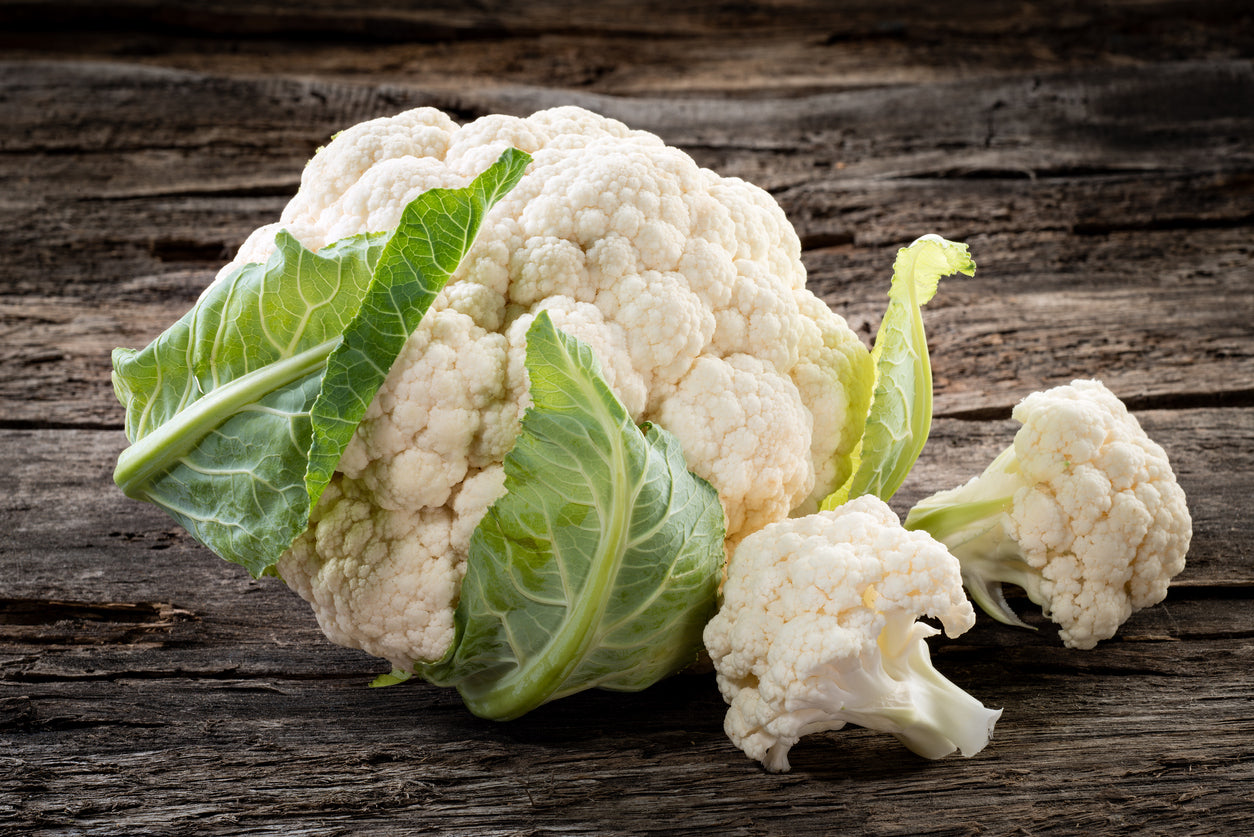Cauliflower offers up surprising health benefits

Nutritionists always seem to be talking up the health benefits of broccoli, Brussels sprouts, arugula and other green cruciferous vegetables from the Brassicaceae family. And, it’s true that these veggies - loaded with essential vitamins, minerals and beneficial plant chemicals - richly deserve their stellar reputation. Often overlooked in all the “buzz” about these superfoods, however, is the humble vegetable we know as cauliflower.
Scientists say that cauliflower offers much of the nutritious value of its greener cousins – and the same ability to promote optimal health. Here are some of the underrated “perks” of eating cauliflower.
Cauliflower can promote a healthy weight
Cauliflower has officially “arrived” as a superfood, making it onto the Centers for Disease Control and Prevention’s (CDC) list of “powerhouse fruits and vegetables, defined as nutrient-rich foods most associated with reduced chronic disease risk. One of the reasons for cauliflower’s inclusion on the list is its high content of dietary fiber, which the US Department of Agriculture (USDA) reports as over 2 grams per cup of chopped cauliflower. Consuming dietary fiber can help create a feeling of fullness, and possibly help ward off overeating. Experts say that diets high in fiber from fruits and vegetables are associated with lower rates of obesity, which is a risk factor for heart disease and type 2 diabetes.
Good to know: Fiber in cauliflower also helps “keep things moving” in the digestive tract, helping to ease constipation. If you are looking to maintain a healthy weight, munching on cauliflower (which contains a mere 27 calories a cup) is a shrewd move.
Support your heart with cauliflower
With over 50 mg of vitamin C per cup (over 50 percent of the daily adult recommended dietary intake) cauliflower is surprisingly high in this antioxidant nutrient. Vitamin C is necessary for the production of collagen, which in turn is important for healthy, flexible arteries.
And, the fiber in cauliflower does “double duty” when it comes to promoting a happy heart. Not only does it help maintain healthy weight, but it appears to improve circulation, reduce harmful LDL cholesterol and lower blood pressure – three more gifts to coronary health. Finally, cauliflower is rich in important antioxidants, such as sulforaphane, that researchers say can help reduce cell damage and protect against chronic conditions like heart issues and cancer.
Cauliflower helps maintain sturdy bones
Cauliflower contains 24 mg of calcium in a one-cup serving - along with 16 mg of magnesium, 320 mg of potassium and 47 mg of phosphorus. These essential minerals are all needed for bone health. The same cup of cauliflower also offers 16.6 mcg of vitamin K - close to 20 percent of the adult RDA. While vitamin K is known for its ability to promote healthy blood clotting, recent research has shown that it also improves bone health by modifying bone matrix proteins and improving calcium absorption. In simple terms, vitamin K helps keep calcium out of the arteries and in the bones, where it belongs. In light of vitamin K’s importance in bone maintenance, it’s probably not surprising that low intake has been linked to a higher risk of bone problems.
(Caution: If you are using anticoagulant medications, consult your integrative doctor before adding a lot of cauliflower to your diet. The high levels of vitamin K in cauliflower means that it can act as a natural blood thinner).
Cauliflower “plays well with others” in recipes
The mild taste and appealing, crumbly texture of cooked cauliflower allows this obliging veggie to easily blend into recipes. Use it to enhance and extend soups, stews and casseroles - or feature it as a side dish with melted cheese, garlic and chives. (Spices such as thyme, dill, sage and tarragon can lend even more intriguing flavor and a more pronounced antioxidant “punch.”)
You can also fry cauliflower until golden brown and use it to add texture and flavor to rice dishes. Roast cauliflower florets with olive oil and chili pepper for a savory taste sensation, or mix them with mushrooms, green pepper and onions for a flavorful, nutrient-packed pizza topping.
Of course, cauliflower can also be enjoyed raw. Uncooked cauliflower florets have a zippy taste and crunchy texture that make them a welcome addition to salads, sandwiches and "crudite" trays. As always, choosing organic options whenever possible can reduce your exposure to synthetic pesticides.
When buying fresh cauliflower look for intact, unblemished heads with bright green leaves still attached. Cauliflower can last for up to five days in the crisper drawer of your refrigerator.
By the way, cauliflower is also a good source of B vitamins, such as folate, thiamin, riboflavin, niacin and pantothenic acid. In addition, dietary fiber in cauliflower has been shown in population studies to decrease the risk of colon cancer. Researchers at the prestigious Cleveland Clinic report that a study of over 1,500 colon cancer survivors showed that dietary fiber also may even help prolong survival.
To (slightly mis- )quote a beloved puppet character: “It’s not easy being (not) green.” Maybe it’s time to give cauliflower some respect - and add it to your healthy diet today, alongside its greener relatives. Your body will thank you!
Sources for this article include






